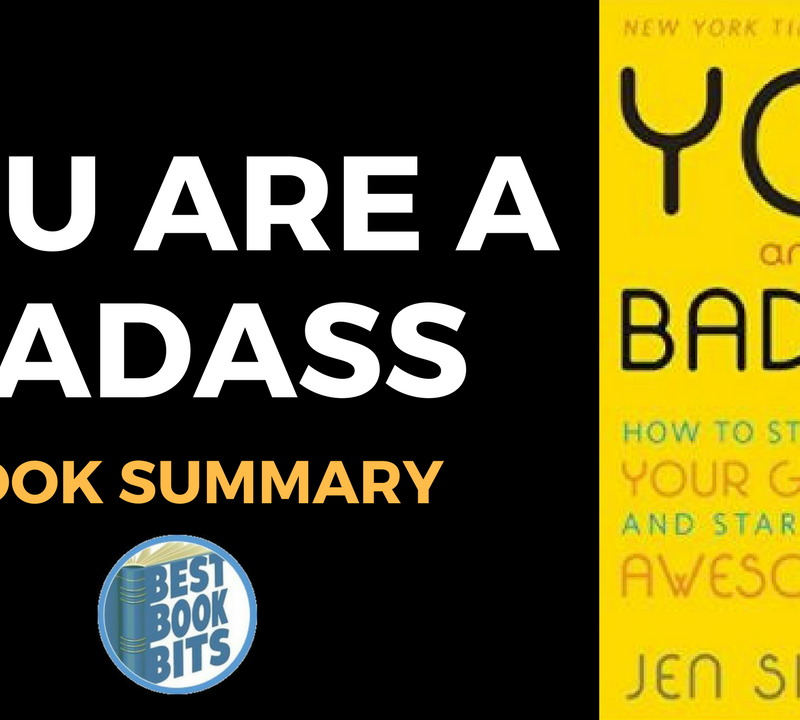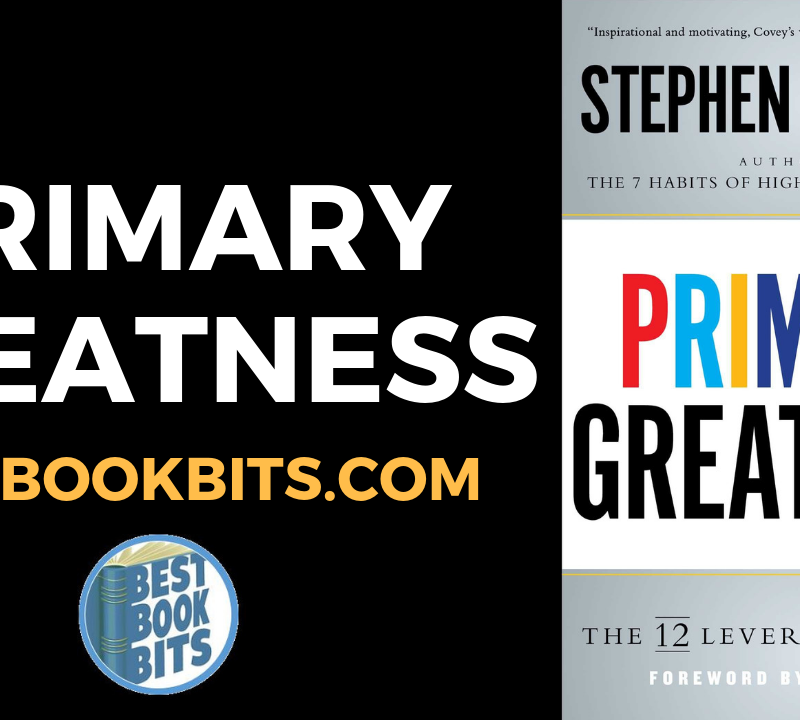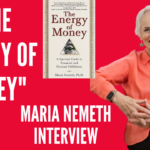★DOWNLOAD THIS FREE PDF SUMMARY HERE
? MY FREE BOOK TO LIVING YOUR DREAM LIFE”
? SPONSOR BESTBOOKBITS BY USING PATREON
? SUPPORT BESTBOOKBITS BY CLICKING THE LINKS BELOW
- 150 PDF Summaries
- Coaching Program
- Subscribe to My Channel
- Website
- Spotify
- Book Club
- Mailing List
- Introduction
- I was yet to understand the different between merely making a living and making a life.
- I always had far too much month left over at the end of the money.
- Be a student, not merely a follower.
- Chapter 1: Five Key Words
- Success is no more than the natural consequence of consistently applying the fundamentals of success to life.
- There are always a half-dozen things that make eighty percent of the difference.
- For a farmer to reap a plentiful harvest in the fall, the half-dozen basics he must concentrate on are fairly obvious; soil, seed, water, sunshine, nourishment, and care. Each component is of equal importance because only together do they bring to fruition a successful harvest.
- What are half-dozen things that will make the most difference to the outcome?
- Wealth that comes from the conversion of effort and enterprise into currency and equity.
- For each of us, the specific amount required for us to feel wealthy will differ. Yet I’m sure that our basic dream is the same: to be free of financial pressures, to have freedom of choice, and to enjoy the opportunity to create and to share.
- Happiness is the skill of reacting to the offerings of life by perception and by enjoyment. It’s achieved by both giving and receiving, reaping and bestowing. It’s being able to feast on harmony as well as food, on ideas as well as bread. Happiness comes to those who deliberately expand their horizons and experiences.
- Discipline is the bridge between thought and accomplishment…the glue that binds inspiration to achievement.
- Discipline is the foundation on which all success is built. Lack of discipline inevitably leads to failure.
- Failure is rarely the result of some isolated event. Rather, it is a consequence of a long list of accumulated little failures which happen as a result of too little discipline.
- Failure occurs each time we fail to think…today, act…today, care, strive, climb, learn, or just keep going…today.
- The danger comes when we look at a day squandered and conclude that no harm has been done. After all, it was just one day. But add up these days to make a year and then add up these years to make a lifetime and perhaps you can now see how repeating today’s small failures can easily turn your life into a major disaster.
- Discipline is the master key. It unlocks the door to wealth and happiness, culture and sophistication, high self-esteem and high accomplishment, and the accompanying feelings of pride, satisfaction, and success.
- Your commitment will be tested when circumstances emerge that could interfere with your commitment to your new discipline – when you will have to perform, come rain or come shine.
- The smallest discipline can have an incredible effect on your attitude.
- A new discipline immediately changes the direction of your life, like a ship turning in mid-ocean and heading toward a new destination.
- Discipline attracts opportunity. Exciting opportunities invariably come to those who have developed skills and who have the ambition to act. And those who through discipline and commitment set their sights high will grab on to opportunities that forever remain unseen by more timid souls.
- Success is also an elusive notion, a paradox. After all, it is both a journey and a destination, isn’t it?
- It’s the steady, measured progress toward a goal and the achievement of a goal.
- Success is making your life what you want it to be.
- Success is not a set of standards from our culture but rather a collection of personal values clearly defined and ultimately achieved.
- Making your life what you want it to be for you – that is success.
- There are two ways to face the future: You can face the future with anticipation or you can face it with apprehension.
- Chapter 2: Goals: What Motivate People
- If you had enough motivation you could do incredible things.
- Necessity is the mother of invention. How true! With that in mind, always work on your reasons first and the answers second.
- Carnegie had written the main goal for his life: “I am going to spend the first half of my life accumulating money. I am going to spend the last half of my life giving it all away.
- Massive success is the sweetest revenge.
- Chapter 3: Goals: How to Set Them
- All right, now that you’ve reviews and balanced your list, choose the four goals from each of the four time categories (one-year, three-year, five-year, ten-year) that you consider the most important to you. You now have sixteen goals. For each, write a short paragraph which includes the following: 1) A detailed description of what you want. For example, if it’s a material object, describe how high, how long, how much, what model, what colour, and so on. On the other hand, if it’s a position or a business you want to start, give a detailed job description including salary, title, budget under your control, number of employees, and so on. 2) The reason why you want to achieve or acquire the item described. Here you’ll find out if you really want it or if it’s just a passing fancy. If you can’t come up with a clear and convincing reason why you want it, you should categorize this item as a whim, not as a true goal, and replace it with something else.
- Review them once a week to see if they’re still important and if you are taking active steps toward their realization. As you can see, goal-setting is not a one-time task with the results set in concrete. Instead, it’s a continuous, lifelong process.
- Writing your goals down shows that you’re committed to growth that you’re serious. And to do better you’ve got to get serious.
- Hope long delayed makes the heart sick. (Bible)
- Chapter 4: Goals: Making Them Work for You
- Without dreams and vision, we perish. (Bible)
- Income rarely exceeds personal development.
- Your ability will grow to match your dreams.
- Your abilities will grow. You’ll draw on untapped potential and talents that you never knew existed. And as time goes on, you’ll draw from new reserves deep within your creative mind. Before you know it, you’ll be able to accomplish things that now seem impossible to achieve. You’ll be able to handle things you never thought you could handle. Your mind will give birth to new and creative ideas.
- First, asking starts the process of receiving.
- You’ve got to be better than a good worker. You’ve got to be a good asker.
- Asking intelligently includes answering how high, how long, how much, when, what size, what model, what colour. Describe what you want. Define it. Remember, well-defined goals are like magnets. The better you chisel them, the stronger they pull.
- Unless you have goals, it is impossible to manage your time effectively.
- Keep your eye on your own seasons, lest you lose sight of value and substance.
- Don’t spend minor time on major things.
- Don’t spend major money on minor things, and, conversely, don’t spend minor money on major things. Some people spend a fortune on food for their bodies and very little on food for their minds. If you spend more on candy than on inspirational books and tapes, that would be foolish, right?
★DOWNLOAD THIS FREE PDF SUMMARY HERE
? MY FREE BOOK TO LIVING YOUR DREAM LIFE”
? SPONSOR BESTBOOKBITS BY USING PATREON
? SUPPORT BESTBOOKBITS BY CLICKING THE LINKS BELOW
- 150 PDF Summaries
- Coaching Program
- Subscribe to My Channel
- Website
- Spotify
- Book Club
- Mailing List
- Chapter 5: The Path to Wisdom
- If you wish to be successful, study success. If you wish to be happy, study happiness. If you want to make money, study the acquisition of wealth. Those who achieve these things don’t do it by accident. It’s a matter of studying first and practicing second. (Earl Shoaff)
- If you search, you shall find. (Bible)
- There are two ways to gather wisdom. One way is to learn from your own life. The second is to study the lives of others.
- It’s not what happens to a person that makes the difference in how his or her life turns out. Rather, it’s what he or she does with what happens that determines the outcome.
- Another good time to reflect is at the end of major periods such as a week, a month, or a year. At the end of the week take a few hours for reflection to ponder the events of the past seven days. At the end of a month take a day. And at the end of a year take a week…to review, ponder, and reflect on everything that has happened in your life.
- Sophisticated people have learned how to gather up the past and invest it in the future.
- Our so-called failures serve us well when they teach us valuable lessons. Often, they’re better teachers than our successes.
- Everyone has bought someone’s plan. The questions is, whose?
- Another way you can gain knowledge is vicariously, through other people’s experiences. And you can learn from other people’s successes as well as from their failures.
- All leaders are readers.
- The bible teaches us that humans cannot live on bread alone. It tells us that next to food, our minds and souls must be nourished by words. Unfortunately, most people suffer from mental malnutrition.
- Become self-educated. Standard education will bring you standard results. Check the income figures of those with a standard education and see if that’s what you want. If it isn’t, if you want more than the average, you must become self-educated. (Earl Shoaff)
- There can be a great deal of difference between cost and value.
- Before I met Mr. Shoaff, I used to ask, “How much does it cost?” But he taught me to ask, “What is it worth?” When I started to base my life on value instead of price, all kinds of things began to happen.
- The book unread is the one that can’t help you. You can’t read too many books but you can read too few.
- Chapter 6: The Miracle of Personal Development
- It’s hard to keep that which has not been obtained through personal development.
- How do I develop an above-average income? The answer is, become an above-average person.
- The only way it gets better for you is when you get better. Better is not something you wish, it’s something you become.
- You cannot change the seasons but you can change yourself.
- Opportunity follows difficulty. Expansion follows recession – just like clockwork.
- Part of succeeding is learning to protect what you’ve created.
- The first limitation is procrastination. Procrastination is especially dangerous because of its accumulating nature.
- Blame is another self-imposed limitation.
- Excuses, the third self-imposed limitation.
- Human beings can do remarkable things because they are remarkable. You and I aren’t fish, birds, or dogs. We can turn nothing into something, pennies into fortune, disaster into triumph. In contrast, when a dog starts with weeds he ends up with weeds. The reason? He’s just a dog. He doesn’t have the ability to create.
- You can change all things for the better when you change yourself for the better.
- Inch by inch everything’s a cinch. (Robert Schuller)
- Good people are found, not changed. Sure they can change themselves, but you and I can’t change them.
- Chapter 7: How to Achieve Financial Freedom
- Sophisticated people know that it isn’t the amount that matters; its doing all that we can do with our God-given abilities that really counts.
- What you do speaks so loudly. I can’t hear what you’re saying.
- I remember saying to Mr. Shoaff, “If I had more money I would have a better plan.” He quickly answered, “I would suggest that if you had a better plan you wold have more money.”
- The 70/30 Rule.
- Let me give you the definition of rich and poor. Poor people spend their money and save what’s left. Rich people save their money and spend what’s left. It’s the same amount of money – just a different philosophy.
- Rich or poor – the difference is not so much in how much you make as it is how you use what you make. The choice is yours.
- If your outgo exceeds your income, your upkeep will become your downfall.
- Chapter 8: How to Be an Enlightened Time Manager
- One of the best ways to start regaining control of our time is to learn the most effective time-management word. Do you know what it is? The word is “no.” Learn to say no.
- In behavioural psychology we learn that everything is a result of something else. And when a problem arises, it is usually a clue that a deeper problem lies beneath the surface.
- Don’t let good ideas escape you.
- Don’t start your day until you have it finished.
- Don’t start the week until you have it finished.
- Don’t start your month until it’s finished.
- Chapter 9: The Principle of Association
- Sophisticated people weigh their actions. They know what a major is and what a minor is. They don’t often get confused by such things.
- Spend more time with the right people.
- If you truly want success, you’ve got to get around the right people. (Earl Shoaff)
- Make an investment in a rich person’s appetite. Take a rich person out for a meal. There’s no telling what you can learn in an hour or two of wealth-oriented talk.
- Chapter 10: Your Road to a Richer Lifestyle
- The key to happiness is not more. Happiness is an art to be studied and practiced.
- Lifestyle is style over amount. And style is an art – the art of living. You can’t buy style with money. You can’t buy good taste with money. You can only buy more money. Lifestyle is culture – the appreciation of good music, dance, art, sculpture, literature, and plays. It’s taste for the fine, the unique, and the beautiful.
- If we don’t go for the higher taste, we will settle for the lower ones.
- Tip comes from the words to insure promptness.
- There are many treasures, but the greatest of these is love. In other words, it’s better to live in a tent on the beach and know love than to live in a mansion all alone. Ask me…I know. Your family and your love must be cultivated like a garden. Time, effort, and imagination must be summoned constantly to keep it flourishing and growing.
- After all, what is wealth without character, industry without art, quantity without quality, enterprise without satisfaction, and possessions without joy.
- Chapter 11: The Day That Turns Your Life Around
- In the free enterprise system you must act to make things happen. Only applied knowledge counts.
- Emotions are the most powerful forces inside us. Under the power of emotions human beings can perform the most heroic (as well as the most barbaric) acts.
- It’s far better to make a wrong decision than to not make one at all.
- I have given up on the idea of getting rid of the butterflies in my stomach. But at least now I can make then fly in formation most of the time.
- Noting can resist a human will that will stake even its existence on the extent of its purpose. (Benjamin Disraeli)
- Knowledge fuelled by emotion equals action.
- Faith without action serves no useful purpose.
★DOWNLOAD THIS FREE PDF SUMMARY HERE
? MY FREE BOOK TO LIVING YOUR DREAM LIFE”
? SPONSOR BESTBOOKBITS BY USING PATREON
? SUPPORT BESTBOOKBITS BY CLICKING THE LINKS BELOW
- 150 PDF Summaries
- Coaching Program
- Subscribe to My Channel
- Website
- Spotify
- Book Club
- Mailing List
2 comments on Jim Rohn: 7 Strategies for Wealth & Happiness Book Summary
Leave a Reply
You must be logged in to post a comment.














Thank you for the great article
It works very well for me